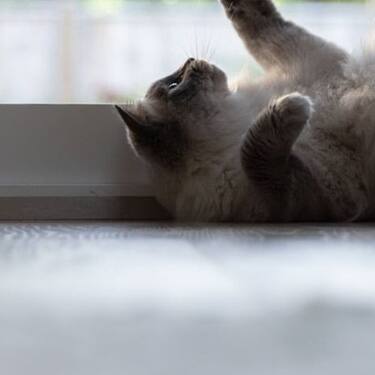
-
Find the right food for your petTake this quiz to see which food may be the best for your furry friend.Find the right food for your petTake this quiz to see which food may be the best for your furry friend.Featured products
 Perfect Weight Small & Mini Adult Dog Food
Perfect Weight Small & Mini Adult Dog FoodHill's Science Plan Adult Small & Mini Dog Food with Turkey is a complete premium pet food for adult small dogs from 1 year old that are prone to weight gain or slightly overweight. This deliciously smooth mousse is formulated to deliver the appropriate amount of energy to support weight maintenance in adult dogs.
Shop Now Perfect Digestion Small & Mini Adult Dog Food
Perfect Digestion Small & Mini Adult Dog FoodHill's Science Plan Perfect Digestion Small & Mini Adult Dog Food with Turkey is a complete premium pet food for small breed adult dogs aged 1–6 years. This deliciously smooth mousse is precisely balanced to deliver the appropriate amount of energy and to support digestive health in adult, small breed dogs.
Shop Now Hypoallergenic Small & Mini Adult Dog Food
Hypoallergenic Small & Mini Adult Dog FoodHILL'S SCIENCE PLAN Hypoallergenic Small&Mini Adult dog food with Salmon is complete pet food for adult small dogs 1–6 years old. It's formulated for dogs with delicate skin and stomach, with limited high quality novel protein sources & no grain.
Shop NowFeatured products Sterilised Mature Adult Cat Food
Sterilised Mature Adult Cat FoodHill's Science Plan Sterilised Cat Mature Adult Cat Food with Chicken is specially formulated with ActivBiome+ Multi-Benefit Technology. It is a precisely balanced nutrition tailored to meet the needs of mature adult sterilised cats, ages 7+, and to promote graceful ageing.
Shop Now Urinary Health Adult Cat Food with Chicken
Urinary Health Adult Cat Food with ChickenHill's Science Plan Urinary Health Adult Cat Food with Chicken supports the health of the whole urinary system. Suitable for sterilised cats.
Shop Now Oral Care Adult Cat Food
Oral Care Adult Cat FoodHill's Science Plan Oral Care Adult Cat Food with Chicken contains clinically proven kibble technology to reduce plaque & tartar build up.
Shop Now -
Dog
- Dog Tips & Articles
-
Health Category
- Weight
- Food & Environmental Sensitivities
- Urinary
- Digestive
- Joint
- Kidney
-
Life Stage
- Puppy Nutrition
- Adult Nutrition
- Senior Nutrition
Cat- Cat Tips & Articles
-
Health Category
- Weight
- Skin & Food Sensitivities
- Urinary
- Digestive
- Kidney
-
Life Stage
- Kitten Nutrition
- Adult Nutrition
Featured articles Virtual Vet Visits: What You Need to Know
Virtual Vet Visits: What You Need to KnowLearn the ins and outs of a televet appointment before you talk to a vet online.
Read More Tips For Mixing Wet And Dry Pet Food
Tips For Mixing Wet And Dry Pet FoodDiscover tips for mixing wet and dry pet food to ensure balanced nutrition and variety for your pet. For comprehensive feeding advice, visit Hill's Pet UK.
Read More Develop your gut instinct | Hill's Pet
Develop your gut instinct | Hill's PetDigestive disorders can affect any part of the digestive system, from the stomach, small intestine and through to the large intestine.
Read More -


It's no secret that pet parents often don't get a good night's sleep. Feline parents, in particular, are vulnerable to sleepless nights because of nocturnal cat behaviour.
Why are cats nocturnal? A cat's biological clock is set to "active" throughout the night, and this instinct manifests itself in a variety of ways, including wanting to play, asking for a midnight snack or pushing you around so they can get a better spot on the bed, usually on your pillow!
But there are a few ways to manage your cat's nighttime antics, which is great news for everyone in the sleep-deprived family.
Playtime Equals Sleepytime
If you're a new cat parent, you may be surprised at how often kittens sleep during the day. It's true that most cats spend most of their day sleeping, whether their humans are home or not. PetMD’s advice to help your cat burn off the energy stored up all day is by actively engaging your furry friend for about 20 to 30 minutes when you arrive home. They'll love the attention, and you'll have a nice welcome-home activity. Keep in mind that they might just take another power nap and be ready to rock again just as you've snuggled up in your cozy bed. So it's a good idea to spend another 20 to 30 minutes before bedtime.

Another way to keep your kitty happy is to provide outlets for independent play. For example, open the curtains or blinds in an unoccupied room so that they can survey the nightlife in your neighbourhood. The Animal Humane Society notes that you can even incorporate playtime into your nightly TV session! You'll want to avoid any toys that make noise; otherwise, you'll hear that jingly ball rolling up and down all night.
Bedtime Dinner
As seasoned pet parents can tell you, if you get up and feed your cat during the middle of the night once, they'll expect you to do it every single night. If you've already started feeding your cat at 2 am, to keep them quiet, don't despair–you can phase it out over time.


Tasty Tips
One way to do this is to give your cat dinner close to bedtime, preferably before your rigorous pre-bed playdate. To avoid overfeeding your cat, be sure to portion out meals appropriately during the day. Follow the directions provided on the cat food package, and if you have questions about your cat's feeding schedule and behaviour, ask a veterinarian.
Ignorance Is Bliss
Have you ever closed your bedroom door in hopes your feline friend would seek other ways to burn off their midnight energy? If so, you've already discovered that cats view a closed door as a challenge and will bang against it until it opens. (A note to new pet parents: Cats don't give up. They will spend hours trying to open that door.) Cats that are especially determined will run at full speed and hurl themselves at the door.
You may be tempted to command your furry companion to go away, but resistance is futile. For a cat, any attention is good attention. Any reaction from you means that you're ready to play, but never ever discipline their nocturnal cat behaviour. Your cat is just doing what comes naturally. Your best bet is to ignore your cat completely. It's not easy, but eventually, they’ll saunter off for other entertainment.
It may take a few nights before your kitty realises you won't react to nighttime demands. With patience and dedication, you and your cat can look forward to restful nights, and you both will have more energy to play during the day!
Image source: Flickr


Christine O'Brien is a writer, mom, and long-time cat parent whose two Russian Blues rule the house. Her work also appears in Care.com, What to Expect, and Fit Pregnancy, where she writes about pets, pregnancy, and family life. Find and follow her on Instagram and Twitter @brovelliobrien.
Related products

Hill's Science Plan Oral Care Adult Cat Food with Chicken contains clinically proven kibble technology to reduce plaque & tartar build up.

Hill's Science Plan Urinary Health Adult Cat Food with Chicken supports the health of the whole urinary system. Suitable for sterilised cats.

Hill's Science Plan Senior Cat Food with Chicken is a complete pet food, specially formulated with ActivBiome+ Multi-Benefit Technology.
This food supports healthy aging during the golden years. Contains a special ingredient blend to help keep older cats agile, more alert & interactive.

Hill's Science Plan Sterilised Cat Mature Adult Cat Food with Chicken is specially formulated with ActivBiome+ Multi-Benefit Technology. It is a precisely balanced nutrition tailored to meet the needs of mature adult sterilised cats, ages 7+, and to promote graceful ageing.
Related articles

Feeding time can be a wonderful bonding opportunity for you and your cat. Find out how to make the most of it and create a healthy habit with HIll's Pet UK.

Good nutrition is about the right balance of nutrients. Learn more about health issues when feeding a cat food that has an improper nutritional balance from your friends at Hills Pet Nutrition.

Find the right Hill

Discover what you can do to spot and support a sensitive cat stomach. See what routines and food you can implement to help your cat be happy and healthy.

Put your cat on a diet without them knowing
Our low calorie formula helps you control your cat's weight. It's packed with high-quality protein for building lean muscles, and made with purposeful ingredients for a flavourful, nutritious meal. Clinically proven antioxidants, Vitamin C+E, help promote a healthy immune system.
Put your cat on a diet without them knowing
Our low calorie formula helps you control your cat's weight. It's packed with high-quality protein for building lean muscles, and made with purposeful ingredients for a flavourful, nutritious meal. Clinically proven antioxidants, Vitamin C+E, help promote a healthy immune system.

